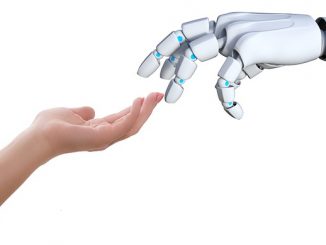Eric Schmidt says in the next year, AI models will unite three key pillars: very large context windows, agents and text-to-action, and no-one understands what the impact will be but it will involve everyone having a fleet of AI agents at their command pic.twitter.com/roYSfZGQ5J
— Tsarathustra (@tsarnick) August 13, 2024
In a recent Q&A session at Stanford, Eric Schmidt, former CEO and Chairman of search giant Google, offered a compelling vision of the near future in artificial intelligence. His predictions, both exciting and sobering, paint a picture of a world on the brink of a technological revolution that could dwarf the impact of social media.
Schmidt highlighted three key advancements that he believes will converge to create this transformative wave: very large context windows, agents, and text-to-action capabilities. These developments, according to Schmidt, are not just incremental improvements but game-changers that could reshape our interaction with technology and the world at large.
The first pillar of this AI revolution is the expansion of context windows. Schmidt expressed surprise at how long these “short-term memories” for AI can become. This advancement allows AI to process and retain vast amounts of information, mimicking human cognition in its ability to summarize and forget less relevant details.
The implication is clear: AIs will be able to digest and synthesize information from multiple sources at a scale previously unimaginable.
The second element Schmidt emphasized is the development of AI agents. These are not just passive information processors but active learners.
Schmidt described a process where these agents can read about a subject (like chemistry), discover its principles, test their understanding, and then incorporate that knowledge into their base. This recursive learning process has the potential to create AIs with deep, adaptable, and rapidly expanding knowledge bases.
Perhaps the most provocative of Schmidt’s predictions concerns text-to-action capabilities. He provided a hypothetical scenario involving the potential ban of TikTok, where a user could command an AI to create a TikTok clone, complete with user base and content, in a matter of seconds.
This example illustrates the potential for AI to translate natural language commands into complex digital actions, essentially providing every individual with their own tireless, skilled programmer.
The implications of these advancements are profound. Schmidt suggests that the impact will be “much bigger than the horrific impact we’ve had by social media.” This statement, coming from a tech industry veteran, underscores the potential for both innovation and disruption.
When pressed on the timeline for these developments, Schmidt’s response was startling: “very soon.” He expressed confidence that the convergence of these three technologies – large context windows, learning agents, and text-to-action capabilities – will form the “next wave” of AI advancement.
Schmidt’s predictions raise important questions about the future of work, creativity, and even the nature of human-computer interaction. If his vision comes to pass, we may be looking at a world where complex technical tasks are as simple as speaking a command, where AIs can learn and adapt at incredible speeds, and where the barrier between idea and implementation is virtually non-existent.
However, these advancements also bring potential concerns. The ease of creating and disseminating content, as illustrated in Schmidt’s TikTok example, could exacerbate issues of misinformation and digital manipulation. The rapid learning capabilities of AI agents might outpace human ability to understand and control their development. And the democratization of programming through text-to-action could lead to a proliferation of software with unforeseen consequences.
As we stand on the cusp of this new era, Schmidt’s words serve as both a promise and a warning. The potential for innovation and progress is immense, but so too is the need for careful consideration of the ethical and societal implications of these technologies.
In conclusion, Eric Schmidt’s vision of AI’s near future is one of unprecedented capability and transformative power. As these technologies continue to develop, it will be crucial for technologists, policymakers, and the public to engage in thoughtful dialogue about how to harness these advancements for the benefit of society while mitigating potential risks.
The next wave of AI is coming, and if Schmidt is correct, it will reshape our world in ways we are only beginning to imagine.
- Bulenox: Get 45% to 91% OFF ... Use Discount Code: UNO
- Risk Our Money Not Yours | Get 50% to 90% OFF ... Use Discount Code: MMBVBKSM
Disclaimer: This page contains affiliate links. If you choose to make a purchase after clicking a link, we may receive a commission at no additional cost to you. Thank you for your support!





Leave a Reply